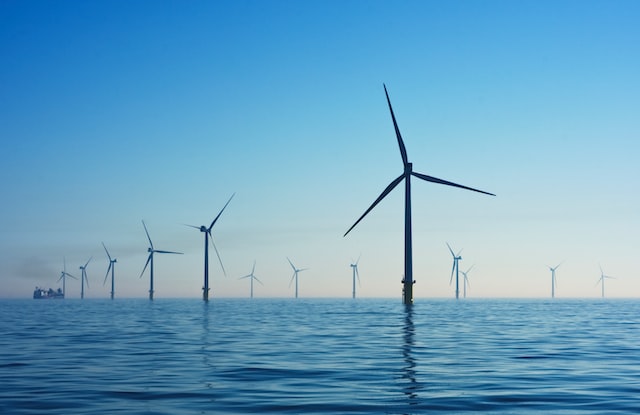The Fight For Clean Energy: Progress And Peril

Table of Contents
Significant Advances in Renewable Energy Technologies
The past decade has witnessed remarkable advancements in renewable energy technologies, driving down costs and increasing efficiency. These breakthroughs are paving the way for a cleaner energy future, although significant hurdles remain. Several key areas highlight this progress:
-
Rapid advancements in solar panel efficiency and cost reduction: Solar power has experienced a dramatic decrease in price, making it increasingly competitive with fossil fuels. The efficiency of solar panels has also significantly improved, allowing for greater energy generation from smaller surface areas. This is crucial for maximizing land use efficiency in solar farm development.
-
The rise of offshore wind farms and improved turbine technology: Offshore wind farms offer higher energy yields due to stronger and more consistent winds compared to onshore locations. Technological advancements in turbine design have increased their capacity and efficiency, further enhancing their cost-effectiveness. This has led to a significant expansion of offshore wind energy capacity globally.
-
Growing adoption of smart grids and energy storage solutions: Smart grids enhance the integration of renewable energy sources by optimizing energy distribution and reducing transmission losses. The development of advanced energy storage technologies, such as lithium-ion batteries and pumped hydro storage, is crucial for addressing the intermittency of renewable energy sources like solar and wind.
-
Innovations in geothermal and other renewable sources: Geothermal energy, harnessing the Earth's internal heat, is a reliable and sustainable source of energy. Innovations in geothermal technology are expanding its applications, while other renewable sources, like biomass energy and hydropower, continue to contribute to the global clean energy mix.
-
Increased focus on energy efficiency in buildings and transportation: Improving energy efficiency in buildings and transportation is crucial for reducing overall energy consumption. This includes advancements in building insulation, energy-efficient appliances, electric vehicles, and public transportation initiatives. These efforts contribute significantly to reducing reliance on fossil fuels.
The Economic and Political Challenges of the Energy Transition
Despite the technological progress, the transition to clean energy faces significant economic and political headwinds. Overcoming these obstacles is crucial for achieving a sustainable energy future:
-
The ongoing reliance on fossil fuels and the need for phasing them out: Fossil fuels remain a dominant energy source globally, and phasing them out requires substantial investment and policy changes. Subsidies for fossil fuels often hinder the competitiveness of renewable energy sources.
-
The high upfront costs of renewable energy infrastructure: The initial investment required for building renewable energy infrastructure, such as solar farms and wind turbines, can be substantial. Securing funding and attracting investment are crucial challenges for widespread adoption.
-
Political resistance to policies promoting clean energy: Political resistance to policies promoting clean energy, often driven by vested interests in the fossil fuel industry, creates obstacles to implementing effective climate action policies. This resistance often manifests as lobbying efforts against regulations and incentives for clean energy.
-
The need for robust government policies and incentives: Government policies play a vital role in driving the clean energy transition. This includes implementing carbon pricing mechanisms, offering tax incentives for renewable energy projects, and investing in research and development. Strong regulatory frameworks are essential to ensure safety and efficiency.
-
The challenge of ensuring energy security during the transition: Ensuring a reliable and secure energy supply during the transition is essential. Diversifying energy sources and building robust energy grids are crucial for maintaining energy security while reducing reliance on fossil fuels. This requires careful planning and coordination across various sectors.
Addressing Energy Poverty and Ensuring Equitable Access
A just transition to clean energy must address energy poverty and ensure equitable access to affordable and reliable energy for all, particularly in developing countries. Sustainable Development Goal 7 aims to ensure access to affordable, reliable, sustainable, and modern energy for all. This requires targeted investments in clean energy infrastructure in underserved communities and promoting energy efficiency measures tailored to specific contexts. Bridging the energy gap and promoting energy equity are critical aspects of a truly sustainable future.
Environmental and Social Impacts of Clean Energy Technologies
While clean energy technologies offer significant environmental benefits compared to fossil fuels, they also have potential environmental and social impacts that need careful consideration:
-
The environmental impact of manufacturing and disposing of renewable energy technologies: The manufacturing process of renewable energy technologies can have environmental impacts, including resource extraction, energy consumption, and waste generation. Life-cycle assessments are crucial for evaluating the overall environmental footprint of these technologies. Sustainable manufacturing processes and responsible disposal methods are vital.
-
The potential impact on land use and biodiversity: Large-scale renewable energy projects, like solar farms and wind farms, can require significant land areas, potentially impacting biodiversity and ecosystems. Careful site selection, minimizing land disturbance, and implementing mitigation measures are crucial to mitigate these impacts.
-
Addressing the social and ethical implications of mining rare earth minerals: Some renewable energy technologies rely on rare earth minerals, the mining of which can have significant social and environmental consequences, including human rights abuses and environmental damage. Ensuring responsible sourcing and ethical mining practices are critical for upholding social and environmental responsibility.
-
The need for sustainable sourcing and responsible manufacturing practices: Sustainable sourcing of materials and responsible manufacturing practices are essential to minimizing the environmental and social impacts of clean energy technologies. This includes promoting circular economy principles and implementing robust environmental management systems.
Conclusion
The fight for clean energy is a multifaceted endeavor, requiring simultaneous progress on technological innovation, policy reform, economic viability, and social equity. While significant advancements have been made, substantial challenges remain. Addressing these challenges requires a collaborative effort involving governments, industries, and individuals.
Join the fight for clean energy. Advocate for policies that support renewable energy sources, invest in sustainable technologies, and demand greater corporate and governmental accountability in the transition to a cleaner, more sustainable energy future. Let's accelerate the progress and mitigate the peril of climate change by embracing clean energy solutions and ensuring a just and equitable transition for all.

Featured Posts
-
 Post Match Reaction Slot And Enrique Discuss Liverpools Performance And Alisson
May 21, 2025
Post Match Reaction Slot And Enrique Discuss Liverpools Performance And Alisson
May 21, 2025 -
 Etude De Cas La Diversification A Moncoutant Sur Sevre Pres De Clisson
May 21, 2025
Etude De Cas La Diversification A Moncoutant Sur Sevre Pres De Clisson
May 21, 2025 -
 Bbc Antiques Roadshow Arrest Follows American Couples Valuation
May 21, 2025
Bbc Antiques Roadshow Arrest Follows American Couples Valuation
May 21, 2025 -
 The China Factor Assessing The Risks For Premium Auto Brands
May 21, 2025
The China Factor Assessing The Risks For Premium Auto Brands
May 21, 2025 -
 Abn Group Victoria Chooses Half Dome For Digital Marketing Services
May 21, 2025
Abn Group Victoria Chooses Half Dome For Digital Marketing Services
May 21, 2025
